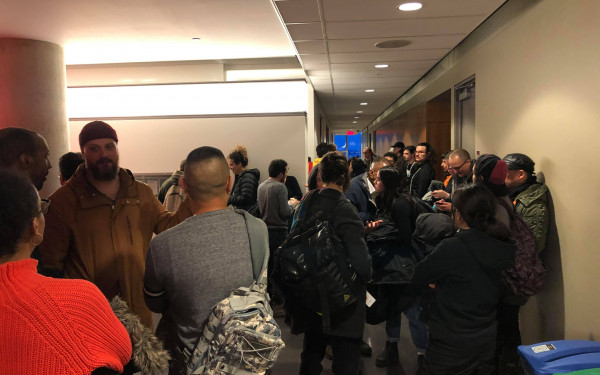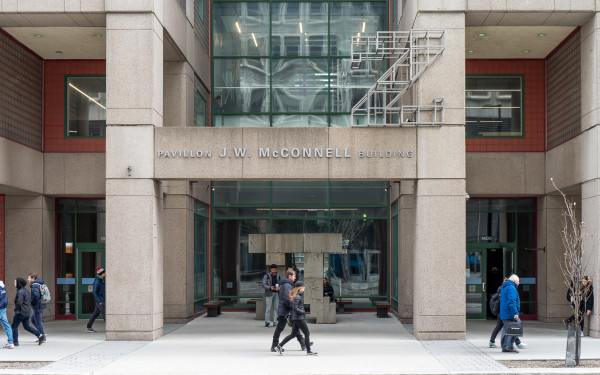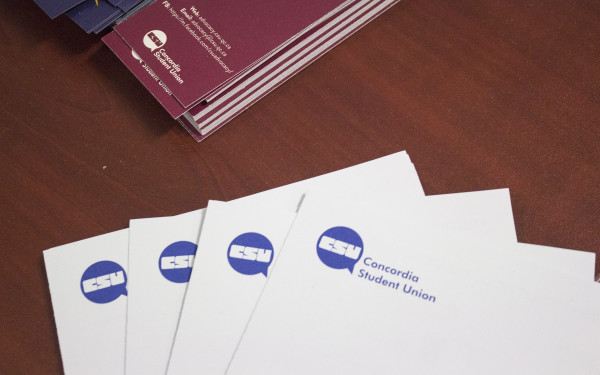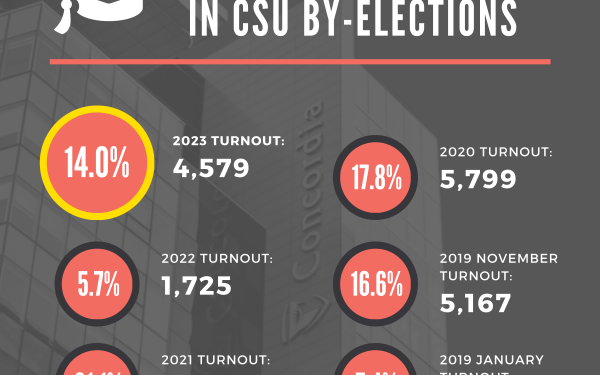New online opt-out system approved by CSU
System encourages students to learn more about fee-levies and their services
The new online opt-out system used in the fall semester was approved by the Concordia Student Union during their meeting on Oct. 14. The system comes as an improvement to the opt-out system implemented by fee-levy groups over the summer semesters.
Speaking on behalf of the fee-levy community, Emily Carson-Apstein, external coordinator for Sustainable Concordia, reported there were 7000 visits to the opt-out form. Of those 7000, 1173 students opted out, and spent an average of 13 minutes on the form. Of the students who opted-out, 30 per cent of students picked specific groups and 70 per cent opted out of all groups.
“This means the educational component works,” Carson-Apstein said, referring to brief biographies written by fee-levies to explain their group and the services they provide.
“Students are taking the time to learn about the fee levies. Five thousand looked at the information and decided not to opt-out,” they added. “That’s reassuring.”
The new system follows all the recommendations made by the previous CSU executives, while maintaining a strong relationship between students and other fee-levy members, explained Carson-Apstein.
Council last discussed the online opt-out system to recommend suggestions for improvement of the system used over the summer—looking into them was assigned to Student Life Coordinator Eduardo Malorni.
Most of them became dead ends, with Malorni explaining that an opt-out button would have to be on the Student Centre page and not the financial services page. The university also discouraged having legal agreements written up for students opting-out to explain the services they’d be losing, saying it wouldn’t be compatible with the school’s mobile app. They also don’t want to be involved in writing the agreements.
“The links on the pages can be routed through the Concordia domain but they do not want to be liable for an external site,” he explained. “Out of the four things, they’re willing to give us one of them but the other three are not confirmed.”
Councillor Tzvi Hersh Filler raised concerns about holding fee-levies accountable in the case that they don’t refund a student’s money.
“All groups understand that they must honour opt-out requests,” Carson-Apstein replied. “Over the summer, a lot of groups have never had to do their own online banking before. The summer was a trial period for groups.”
If a fee-levy continually avoids returning a student’s money, it’s the CSU’s responsibility to report them to the Dean of Students for not fulfilling their duties, explained Malorni.
In a vote of 15 ‘yes,’ one ‘no,’ and two abstentions, the motion to approve the current system passed—with the addition of a legal agreement be drawn up with the Concordia community to institutionalize the system and have CSU executives be mandated to find a solution when fee-levies don’t uphold their end of the opt-out bargain.
Some councillors expressed concern over the opt-out system not being accessible enough.
“Can we email all students the link to opt-out? How else can students find out?” asked councillor Arieh Barak. “It isn’t transparent.”
“I could’ve saved money,” said councillor Yasmine Yahiaoui. “The link wasn’t advertised enough. Maybe other students don’t know this exists. How was I supposed to know?”
Emily Carson-Apstein explained that there is a website with opt-out information, a Facebook page, and each fee-levy has opt-out information on their own pages.
“The fee-levies negotiated with [previous general coordinator] Christopher Kalafatidis and would only agree on the condition that we do not advertise the fee-levy opt-out, and the council at the time agreed,” added Malorni.
Council agreed to discuss increasing the amount of advertising to make the student body more aware of the opt-out.







